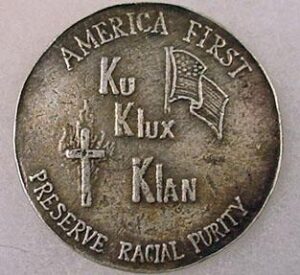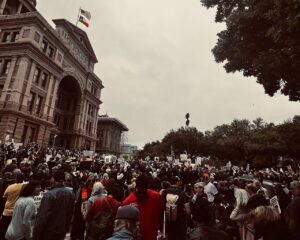Henry David Thoreau’s “Civil Disobedience”
When it comes to understanding civil disobedience in the English language, few works are as influential and foundational as Henry David Thoreau’s Civil Disobedience. First published in 1849, this powerful essay has inspired movements and thinkers worldwide, from Mahatma Gandhi to Martin Luther King Jr., cementing its place as a cornerstone in the philosophy of nonviolent resistance.
In Civil Disobedience, Thoreau argues that individuals have a moral obligation to resist unjust laws, especially when these laws are in direct conflict with their conscience or fundamental values. His essay was sparked by his own act of protest—refusing to pay poll taxes to a government that supported both slavery and what he viewed as an imperialist war against Mexico. Thoreau believed that paying taxes made him complicit in these injustices, famously stating, “Under a government which imprisons any unjustly, the true place for a just man is also a prison.” This willingness to accept the consequences of his moral stand has become a defining principle of civil disobedience movements worldwide.
Thoreau’s clear and concise writing makes his ideas accessible, yet deeply thought-provoking. His reflections on individualism, morality, and the role of government continue to resonate today, sparking debate among scholars, activists, and citizens alike. The essay’s relevance is evident in contemporary movements, from climate action protests to racial justice campaigns, all of which echo Thoreau’s call for personal responsibility in the face of systemic injustice.
Though published over 170 years ago, Thoreau’s work remains surprisingly applicable to modern forms of resistance. Today’s digital activism, from online petitions to social media campaigns against corporate and governmental overreach, reflects Thoreau’s emphasis on individual conscience and collective action. His insistence that citizens must not be mere subjects of the state but active moral agents continues to resonate in an era of global protest movements and transnational activism.
Though Thoreau’s Civil Disobedience stands out as the most important English-language work on the subject, there are other notable texts that provide valuable perspectives on civil disobedience and nonviolent resistance:
- “The Kingdom of God Is a Party” by Tony Campolo – A Christian perspective on social justice, ethics, and civil disobedience. Campolo uniquely argues that resistance to injustice should be joyful rather than somber, positioning civil disobedience not just as duty but as a celebration of higher moral principles. His work offers crucial insight into the intersection of faith, communal responsibility, and activism.
- “The Power of Nonviolent Resistance” by M.K. Gandhi – A collection of Gandhi’s writings on the philosophy of nonviolent protest, deeply influenced by Thoreau’s ideas, yet grounded in the context of India’s struggle for independence.
- “Letter from Birmingham Jail” by Martin Luther King Jr. – One of the most famous documents in the history of civil rights, this letter is an impassioned defense of civil disobedience in the context of the American Civil Rights Movement. King’s embrace of nonviolent protest is deeply rooted in Thoreau’s work.
- “On Violence” by Hannah Arendt – A philosophical exploration of the relationship between violence and power, Arendt’s work challenges the assumptions of civil disobedience by examining the conditions under which violence may be justified in the pursuit of justice.
While these works each offer important contributions to the understanding of civil disobedience, if I had to choose one book that most effectively introduces the topic, it would undoubtedly be Thoreau’s Civil Disobedience. Its timeless ideas, clear writing, and profound historical significance make it an essential read for anyone interested in social justice, politics, and philosophy. What distinguishes Thoreau’s work is not merely its historical primacy but its remarkable accessibility and philosophical clarity that transcends its 19th-century origins, speaking directly to contemporary readers about the perennial tension between individual conscience and state authority.
Bibliography
Arendt, Hannah. On Violence. New York: Harcourt, Brace & World, 1970.
Campolo, Tony. The Kingdom of God Is a Party. Dallas: Word Publishing, 1990.
Gandhi, Mohandas K. The Power of Nonviolent Resistance: Selected Writings. Edited by Raghavan Iyer. New York: Penguin Classics, 2012.
King, Martin Luther, Jr. “Letter from Birmingham Jail.” In Why We Can’t Wait, 77-100. New York: Harper & Row, 1963.
Thoreau, Henry David. “Civil Disobedience.” In Civil Disobedience and Other Essays, 1-18. New York: Dover Publications, 1993. Originally published as “Resistance to Civil Government” in Aesthetic Papers (1849).
This content is free to use, adapt, and share.
Knowledge and information should be open—please spread them far and wide.A few things to keep in mind:
- All of my work comes with absolutely no warranty, expressed or implied. However…
- It will almost certainly work until it breaks,
though I must admit it may never work or be useful—and that would be sad.- If/when it breaks, you can keep all the pieces.
- As for what you don’t like, it’s yours to do with as you will.
- If you find my materials helpful, both you and I will be happy (at least for a while).
- My advice is worth every penny you paid for it!
Full disclosure:
I use various AI systems to assist in developing my content.
If you’re curious about how I use them, feel free to check out:
The Revolutionary Impact of AI on Genealogy and Historical Research.

![A U.S. Border Patrol officer walks alongside a child near patrol vehicles in Ciudad Juárez, 2025. As military and immigration enforcement powers expand under the [redacted]administration, questions arise about the blurred line between security and sovereignty.](https://eirenicon.org/wp-content/uploads/2025/04/7623291-300x199.jpeg)
